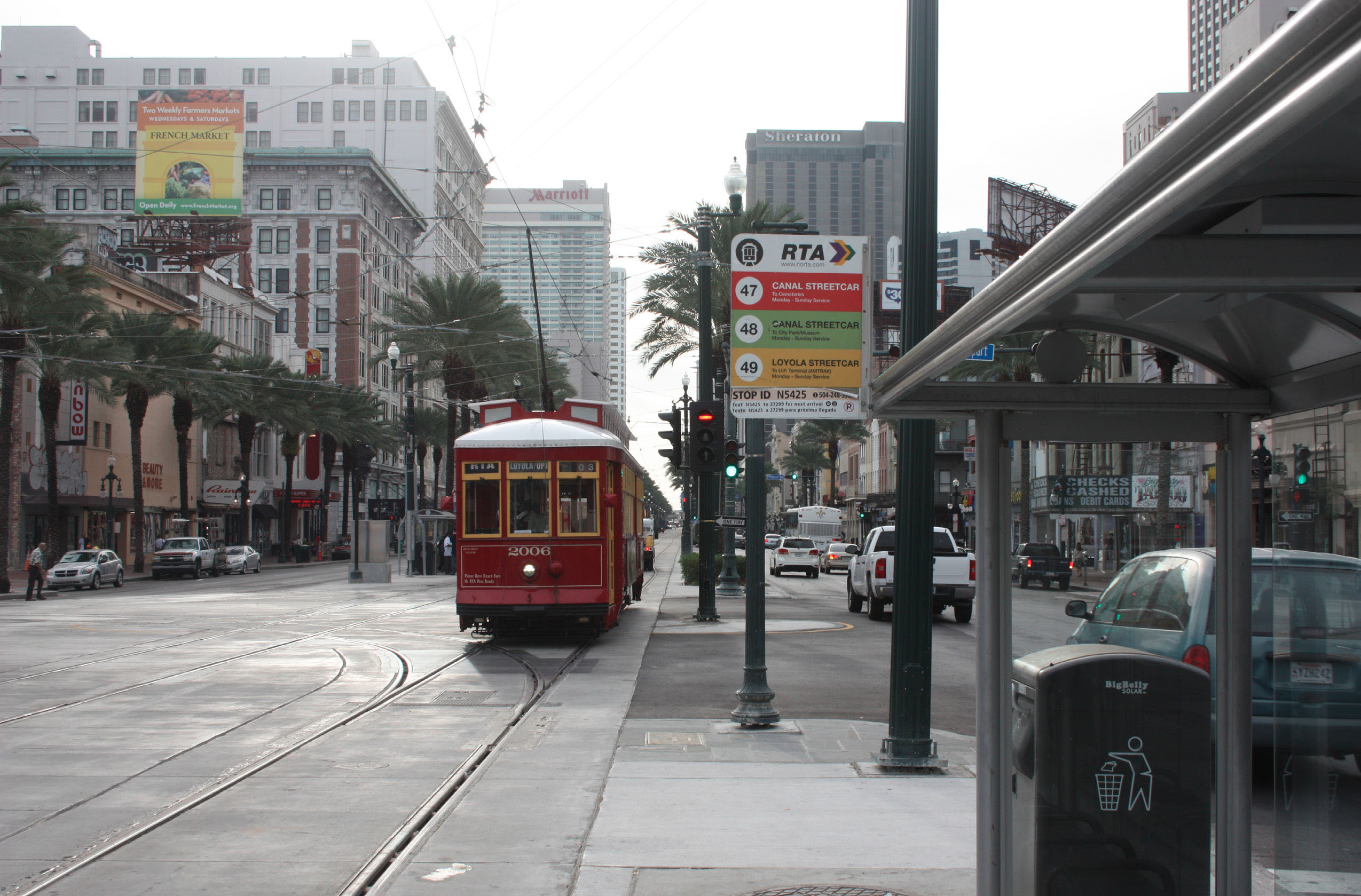
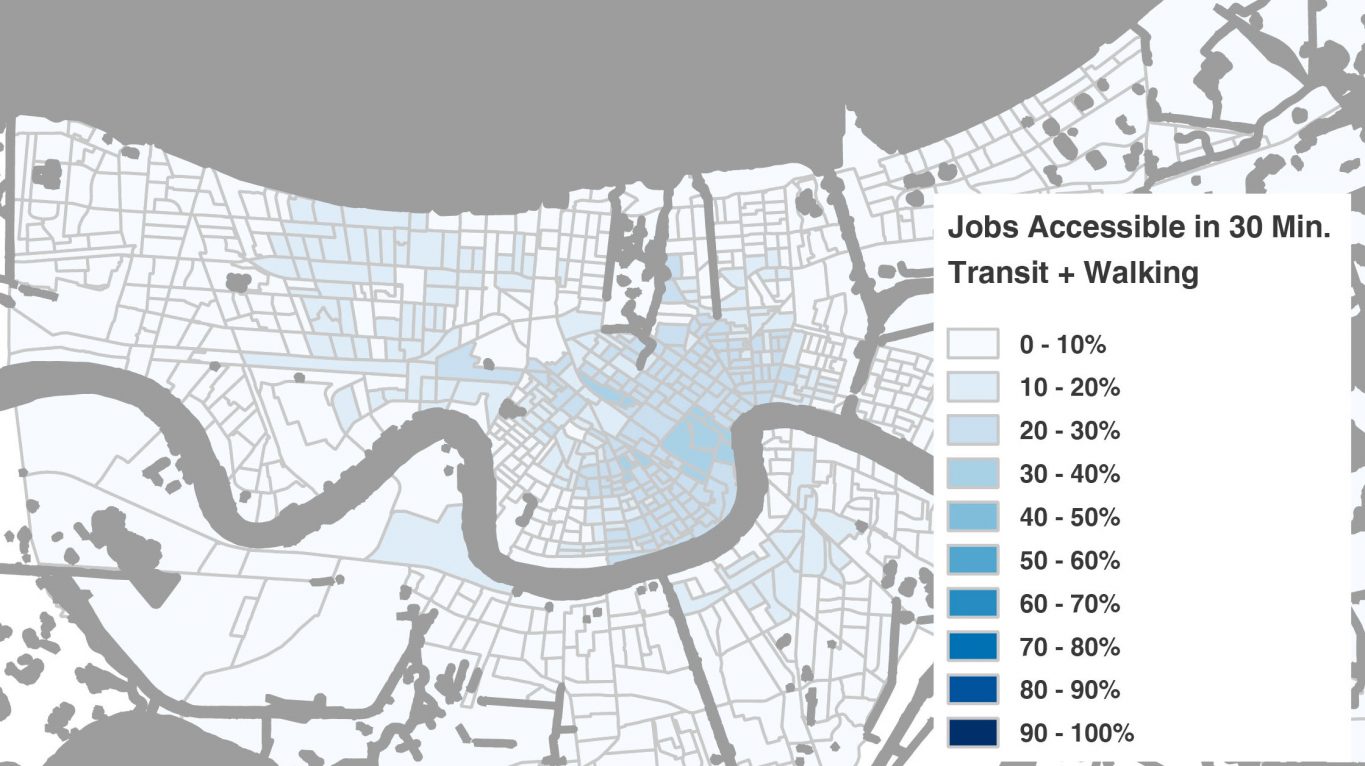 Percentage of Jobs in New Orleans Region Accessible within 30 Minute Transit Commute, by Census Block Group
Percentage of Jobs in New Orleans Region Accessible within 30 Minute Transit Commute, by Census Block Group
The average New Orleanian with a car can reach 89 percent of the region’s jobs in 30 minutes or less, but the average New Orleanian relying on transit can only reach 11 percent of those jobs in the same time period. New Orleans has restored only 42% of its pre-Hurricane Katrina bus service even though 86% of the city’s population has returned. 103% of pre-storm streetcar service has been restored, despite the fact that streetcar service is limited, leaving the rest of the city – especially many disadvantaged neighborhoods – with lower quality transportation options.
Such stark figures are among the hardest hitting in the recently-released 2016 State of Transit Report from Ride New Orleans. Hidden behind them, however, is the story of how this advocacy organization has galvanized and reframed the transportation policy discussion for the New Orleans region in just a few short years.
The group already has multiple wins under its belt, the majority of which are direct responses to recommendations outlined in their 2015 report. The number of weekly bus trips system-wide is up 13% over the past year with overnight service added on several lines. The New Orleans Regional Transit Authority Board recently committed to an ambitious Strategic Transit Planning process and established a Riders Advisory Committee to ensure that community priorities are considered throughout. Ride NOLA has consistently fought for and won better open data policies to improve the experience of using public transportation. They also assembled the Coalition for Quality Transit as an organizing mechanism to stay involved in day-to-day fights for riders, including a recent campaign that successfully prevented bus cuts near streetcar lines.
At TransitCenter, this is exactly the type of exemplary advocacy we’re hoping to strengthen. As such, earlier this year we chose to support RideNola financially in a national competition of applicants during our annual Open Call for Grants.
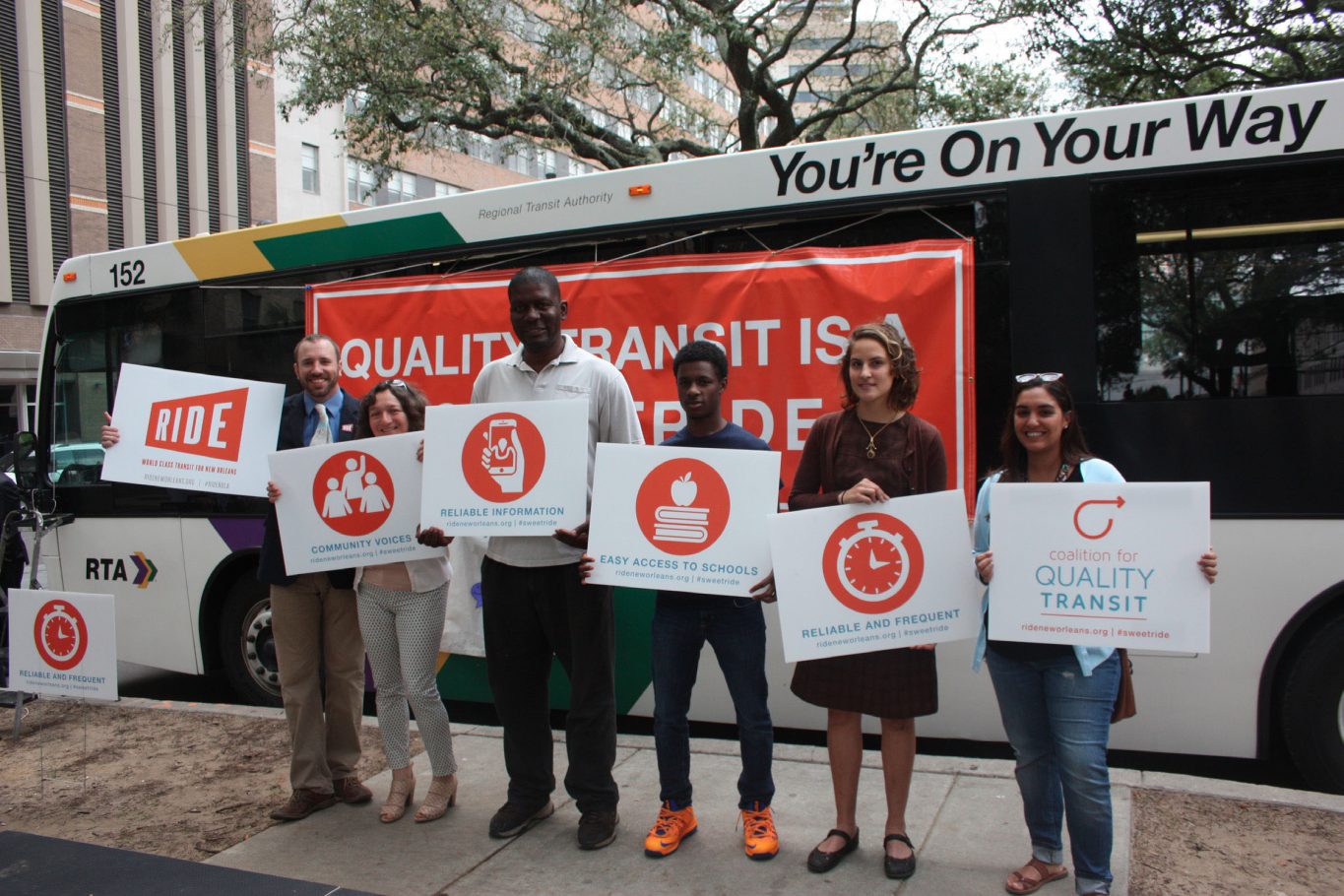 Ride Nola organizes citizen advocates to demand better transit
Ride Nola organizes citizen advocates to demand better transit
What Ride NOLA has done so effectively is to use the language of transit agencies while expressing issues and needs in accessible terms. In their reports, they set ambitious yet achievable goals using transit’s own service and performance metrics. They also applaud the meaningful improvements that have been made while maintaining focus on the continued challenges. And these efforts are paying off. The New Orleans Advocate called Ride NOLA “a driver of conversation about public transportation in the city.”
Thus emboldened, Ride NOLA presses on. Their latest report calls for the Mayor, the New Orleans City Council and RTA Board to commit to increasing RTA vehicles to 1,000,000 vehicle revenue hours by the end of 2020. This amounts to a manageable increase of 8% per year, or 33% overall. The report explains that this level of service “will make it possible to restore frequent transit service to the majority of New Orleans neighborhoods and workers, putting better job and housing opportunities within easier reach.” And this priority aligns with what people actually want–in November and December of 2014, Ride NOLA hosted five focus groups with transit riders. The most popular request was more service hours –transit service that allows riders to get where they need to go, when they need to get there.
Compared to similar transit agencies, New Orleans’ transportation system was the most expensive in 2014 to operate, and the current $1.25 fare hasn’t been raised since 1999. The report calls for the establishment of a Transit Funding Committee made up of businesses, community leaders and elected officials to take a critical look at lowering operating costs as well as identifying new revenue sources.
Through their multi-pronged approach, Ride NOLA is demonstrating that is entirely plausible for advocates to win improved transit service, even in cities with historically low levels of investment in public transportation. By framing the discussion around economic development and access to affordable housing, jobs and overall opportunity for all New Orleanians, Ride New Orleans is making it difficult for transit and elected officials to look the other way.
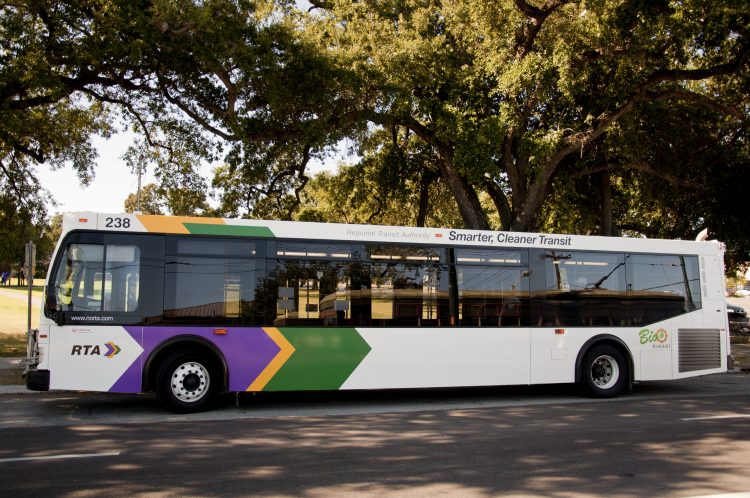 RTA Biodiesel Bus No. 238 by vxla is licensed under CC BY 2.0
RTA Biodiesel Bus No. 238 by vxla is licensed under CC BY 2.0
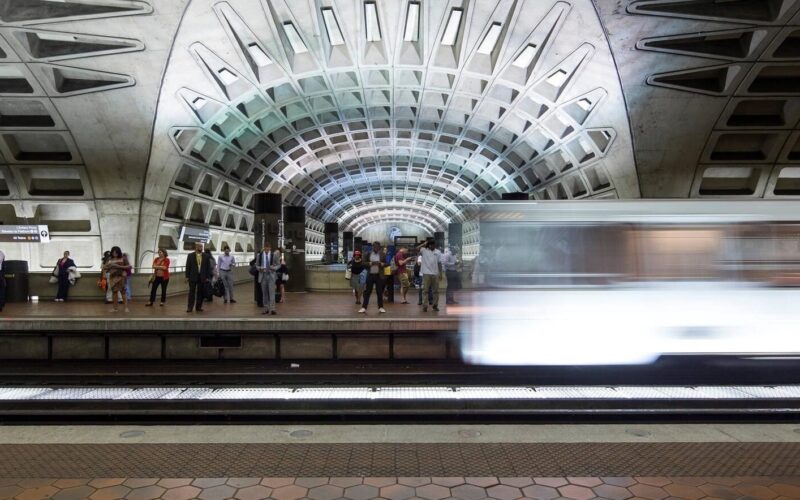 On the Brink: Will WMATA’s Progress Be Erased by 2024?
On the Brink: Will WMATA’s Progress Be Erased by 2024?
The experience of being a WMATA rider has substantially improved over the last 18 months, thanks to changes the agency has made like adding off-peak service and simplifying fares. Things are about to get even better with the launch of all-door boarding later this fall, overnight bus service on some lines starting in December, and an ambitious plan to redesign the Metrobus network. But all of this could go away by July 1, 2024.
Read More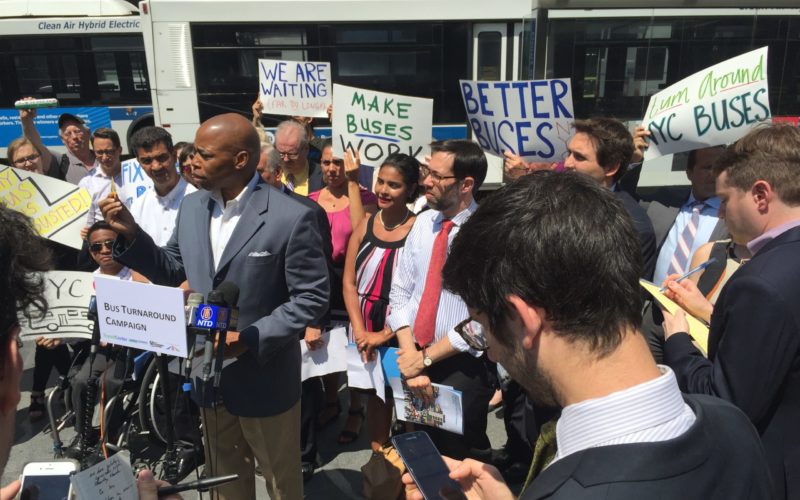 A Bus Agenda for New York City Mayor Eric Adams
A Bus Agenda for New York City Mayor Eric Adams
To create the “state-of-the-art bus transit system” of his campaign platform, Mayor Adams will have to both expand the quantity and improve the quality of bus lanes. We recommend these strategies to get it done.
Read More